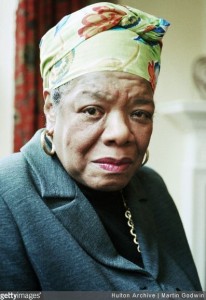 The professionals on a team are, generally speaking, the two attorneys, a neutral financial professional, a neutral child specialist, and a neutral divorce coach. Although the inclusion of financial and mental health professionals in the divorce process is nothing new, the manner in which they are used in the Collaborative process is unique. The attorneys’ roles are different in Collaboration, as well. While each spouse retains his or her own attorney, the attorneys work together to help the clients achieve an outcome that works for the entire family. The attorneys give legal advice to their individual clients, but more importantly, they help their clients realize what their interests and goals are. The objective of Collaboration is to get to a place where everyone is OK (a win-win) rather than a win-lose. The attorneys are trained in the Collaborative model and interest-based negotiation.
A financial neutral helps the divorcing couple with property division and cash flow. Financial neutrals are financial experts and are CPAs, CDFAs, and CFSs who are trained in the Collaborative process and who understand the legal process.
A child specialist is a neutral who helps the couple with creating a comprehensive and viable parenting plan. The child specialist is a therapist who is also trained in the Collaborative process. The child specialist is the voice of the children and not only helps the children during the divorce process, but helps parents help their children during this transition.
A divorce coach is also a therapist and a neutral in this process. The coach’s role is to the help the couple communicate better. It is important for each spouse to have a voice in this process and the coach can help with that. In high conflict cases, a coach helps the process move along more smoothly.
Although it seems like there are a lot of professionals involved in Collaboration, every professional has a specific role. In a non-collaborative case, the attorneys are acting as financial advisor, child specialist, and coach. And while attorneys can help with those pieces of the case, attorneys are not experts in those areas. In the Collaborative process, you get the best advice from the various professionals who are trained to help you reach a settlement. Consequently, a Collaborative team CAN help you avoid the divortex!
The professionals on a team are, generally speaking, the two attorneys, a neutral financial professional, a neutral child specialist, and a neutral divorce coach. Although the inclusion of financial and mental health professionals in the divorce process is nothing new, the manner in which they are used in the Collaborative process is unique. The attorneys’ roles are different in Collaboration, as well. While each spouse retains his or her own attorney, the attorneys work together to help the clients achieve an outcome that works for the entire family. The attorneys give legal advice to their individual clients, but more importantly, they help their clients realize what their interests and goals are. The objective of Collaboration is to get to a place where everyone is OK (a win-win) rather than a win-lose. The attorneys are trained in the Collaborative model and interest-based negotiation.
A financial neutral helps the divorcing couple with property division and cash flow. Financial neutrals are financial experts and are CPAs, CDFAs, and CFSs who are trained in the Collaborative process and who understand the legal process.
A child specialist is a neutral who helps the couple with creating a comprehensive and viable parenting plan. The child specialist is a therapist who is also trained in the Collaborative process. The child specialist is the voice of the children and not only helps the children during the divorce process, but helps parents help their children during this transition.
A divorce coach is also a therapist and a neutral in this process. The coach’s role is to the help the couple communicate better. It is important for each spouse to have a voice in this process and the coach can help with that. In high conflict cases, a coach helps the process move along more smoothly.
Although it seems like there are a lot of professionals involved in Collaboration, every professional has a specific role. In a non-collaborative case, the attorneys are acting as financial advisor, child specialist, and coach. And while attorneys can help with those pieces of the case, attorneys are not experts in those areas. In the Collaborative process, you get the best advice from the various professionals who are trained to help you reach a settlement. Consequently, a Collaborative team CAN help you avoid the divortex!
In parts 1 and 2, we defined vortex as:
1) a whirling mass of water or air that sucks everything near it towards its center;
2) a place or situation regarded as drawing into its center all that it surrounds, and hence, being inescapable or destructible.
As discussed in previous months, the “divortex” can be avoided by choosing the Collaborative Process. Prior articles describe what Collaboration is – it is a process that avoids court and may use a team of experts to help clients create the best settlement option possible. The professionals on a team are, generally speaking, the two attorneys, a neutral financial professional, a neutral child specialist, and a neutral divorce coach. Although the inclusion of financial and mental health professionals in the divorce process is nothing new, the manner in which they are used in the Collaborative process is unique. The attorneys’ roles are different in Collaboration, as well. While each spouse retains his or her own attorney, the attorneys work together to help the clients achieve an outcome that works for the entire family. The attorneys give legal advice to their individual clients, but more importantly, they help their clients realize what their interests and goals are. The objective of Collaboration is to get to a place where everyone is OK (a win-win) rather than a win-lose. The attorneys are trained in the Collaborative model and interest-based negotiation.
A financial neutral helps the divorcing couple with property division and cash flow. Financial neutrals are financial experts and are CPAs, CDFAs, and CFSs who are trained in the Collaborative process and who understand the legal process.
A child specialist is a neutral who helps the couple with creating a comprehensive and viable parenting plan. The child specialist is a therapist who is also trained in the Collaborative process. The child specialist is the voice of the children and not only helps the children during the divorce process, but helps parents help their children during this transition.
A divorce coach is also a therapist and a neutral in this process. The coach’s role is to the help the couple communicate better. It is important for each spouse to have a voice in this process and the coach can help with that. In high conflict cases, a coach helps the process move along more smoothly.
Although it seems like there are a lot of professionals involved in Collaboration, every professional has a specific role. In a non-collaborative case, the attorneys are acting as financial advisor, child specialist, and coach. And while attorneys can help with those pieces of the case, attorneys are not experts in those areas. In the Collaborative process, you get the best advice from the various professionals who are trained to help you reach a settlement. Consequently, a Collaborative team CAN help you avoid the divortex!
The professionals on a team are, generally speaking, the two attorneys, a neutral financial professional, a neutral child specialist, and a neutral divorce coach. Although the inclusion of financial and mental health professionals in the divorce process is nothing new, the manner in which they are used in the Collaborative process is unique. The attorneys’ roles are different in Collaboration, as well. While each spouse retains his or her own attorney, the attorneys work together to help the clients achieve an outcome that works for the entire family. The attorneys give legal advice to their individual clients, but more importantly, they help their clients realize what their interests and goals are. The objective of Collaboration is to get to a place where everyone is OK (a win-win) rather than a win-lose. The attorneys are trained in the Collaborative model and interest-based negotiation.
A financial neutral helps the divorcing couple with property division and cash flow. Financial neutrals are financial experts and are CPAs, CDFAs, and CFSs who are trained in the Collaborative process and who understand the legal process.
A child specialist is a neutral who helps the couple with creating a comprehensive and viable parenting plan. The child specialist is a therapist who is also trained in the Collaborative process. The child specialist is the voice of the children and not only helps the children during the divorce process, but helps parents help their children during this transition.
A divorce coach is also a therapist and a neutral in this process. The coach’s role is to the help the couple communicate better. It is important for each spouse to have a voice in this process and the coach can help with that. In high conflict cases, a coach helps the process move along more smoothly.
Although it seems like there are a lot of professionals involved in Collaboration, every professional has a specific role. In a non-collaborative case, the attorneys are acting as financial advisor, child specialist, and coach. And while attorneys can help with those pieces of the case, attorneys are not experts in those areas. In the Collaborative process, you get the best advice from the various professionals who are trained to help you reach a settlement. Consequently, a Collaborative team CAN help you avoid the divortex!
 The professionals on a team are, generally speaking, the two attorneys, a neutral financial professional, a neutral child specialist, and a neutral divorce coach. Although the inclusion of financial and mental health professionals in the divorce process is nothing new, the manner in which they are used in the Collaborative process is unique. The attorneys’ roles are different in Collaboration, as well. While each spouse retains his or her own attorney, the attorneys work together to help the clients achieve an outcome that works for the entire family. The attorneys give legal advice to their individual clients, but more importantly, they help their clients realize what their interests and goals are. The objective of Collaboration is to get to a place where everyone is OK (a win-win) rather than a win-lose. The attorneys are trained in the Collaborative model and interest-based negotiation.
A financial neutral helps the divorcing couple with property division and cash flow. Financial neutrals are financial experts and are CPAs, CDFAs, and CFSs who are trained in the Collaborative process and who understand the legal process.
A child specialist is a neutral who helps the couple with creating a comprehensive and viable parenting plan. The child specialist is a therapist who is also trained in the Collaborative process. The child specialist is the voice of the children and not only helps the children during the divorce process, but helps parents help their children during this transition.
A divorce coach is also a therapist and a neutral in this process. The coach’s role is to the help the couple communicate better. It is important for each spouse to have a voice in this process and the coach can help with that. In high conflict cases, a coach helps the process move along more smoothly.
Although it seems like there are a lot of professionals involved in Collaboration, every professional has a specific role. In a non-collaborative case, the attorneys are acting as financial advisor, child specialist, and coach. And while attorneys can help with those pieces of the case, attorneys are not experts in those areas. In the Collaborative process, you get the best advice from the various professionals who are trained to help you reach a settlement. Consequently, a Collaborative team CAN help you avoid the divortex!
The professionals on a team are, generally speaking, the two attorneys, a neutral financial professional, a neutral child specialist, and a neutral divorce coach. Although the inclusion of financial and mental health professionals in the divorce process is nothing new, the manner in which they are used in the Collaborative process is unique. The attorneys’ roles are different in Collaboration, as well. While each spouse retains his or her own attorney, the attorneys work together to help the clients achieve an outcome that works for the entire family. The attorneys give legal advice to their individual clients, but more importantly, they help their clients realize what their interests and goals are. The objective of Collaboration is to get to a place where everyone is OK (a win-win) rather than a win-lose. The attorneys are trained in the Collaborative model and interest-based negotiation.
A financial neutral helps the divorcing couple with property division and cash flow. Financial neutrals are financial experts and are CPAs, CDFAs, and CFSs who are trained in the Collaborative process and who understand the legal process.
A child specialist is a neutral who helps the couple with creating a comprehensive and viable parenting plan. The child specialist is a therapist who is also trained in the Collaborative process. The child specialist is the voice of the children and not only helps the children during the divorce process, but helps parents help their children during this transition.
A divorce coach is also a therapist and a neutral in this process. The coach’s role is to the help the couple communicate better. It is important for each spouse to have a voice in this process and the coach can help with that. In high conflict cases, a coach helps the process move along more smoothly.
Although it seems like there are a lot of professionals involved in Collaboration, every professional has a specific role. In a non-collaborative case, the attorneys are acting as financial advisor, child specialist, and coach. And while attorneys can help with those pieces of the case, attorneys are not experts in those areas. In the Collaborative process, you get the best advice from the various professionals who are trained to help you reach a settlement. Consequently, a Collaborative team CAN help you avoid the divortex! 









 Having friends scattered throughout the country has shown me just how drastic divorce proceedings and turnarounds can be. My friend in Baltimore, Maryland, who was married for 5 years with no kids, had no battles over property division, and her divorce still took just over 2.5 years to complete, including a mandatory year of separation before filing (this law has since changed recently for those without children). A friend in Milwaukee, Wisconsin, her divorce with one child and a business involved, took just 6 months to the date. And my good friends (haha), Miranda Lambert and Blake Shelton’s Oklahoma divorce after four years of marriage complete with pre-nup and no kids, took just days from when they filed.
Here in Minnesota the length of time to complete a divorce depends upon several things, including custody, parenting time, child support, and division of debts and property. It can take anywhere from about 6 weeks to a year and a half or more, depending upon whether the parties are cooperating, and depending upon the issues involved. The length of a divorce also largely depends on how the case is resolved. For example, divorcing collaboratively, where both party’s attorneys agree to settle without going to trial and the underlying threat of litigation, can significantly reduce the time it take to complete the divorce for several reasons, the biggest factor being avoiding months awaiting a divorce trial.
Divorce is the time to practice patience, and to always prepare yourself for the divorce process to take longer than anticipated. Even in our instant gratification society where you can have Amazon deliver within the hour, your divorce could take months to years. No matter how long your divorce proceedings may take it is important to remember that divorce never really ends with a “victory” by either party. Both parties typically leave the marriage with substantially less material wealth than they started with prior to the divorce. Occasionally, you may hear about a spouse receiving a very large settlement or substantial alimony compensation. But more commonly, both spouses must compromise in order to reach an agreement. If there are any real “winners” in the process, it’s those who maintain positive relationships with an ex-spouse so that they are able to successfully co-parent their children.
Having friends scattered throughout the country has shown me just how drastic divorce proceedings and turnarounds can be. My friend in Baltimore, Maryland, who was married for 5 years with no kids, had no battles over property division, and her divorce still took just over 2.5 years to complete, including a mandatory year of separation before filing (this law has since changed recently for those without children). A friend in Milwaukee, Wisconsin, her divorce with one child and a business involved, took just 6 months to the date. And my good friends (haha), Miranda Lambert and Blake Shelton’s Oklahoma divorce after four years of marriage complete with pre-nup and no kids, took just days from when they filed.
Here in Minnesota the length of time to complete a divorce depends upon several things, including custody, parenting time, child support, and division of debts and property. It can take anywhere from about 6 weeks to a year and a half or more, depending upon whether the parties are cooperating, and depending upon the issues involved. The length of a divorce also largely depends on how the case is resolved. For example, divorcing collaboratively, where both party’s attorneys agree to settle without going to trial and the underlying threat of litigation, can significantly reduce the time it take to complete the divorce for several reasons, the biggest factor being avoiding months awaiting a divorce trial.
Divorce is the time to practice patience, and to always prepare yourself for the divorce process to take longer than anticipated. Even in our instant gratification society where you can have Amazon deliver within the hour, your divorce could take months to years. No matter how long your divorce proceedings may take it is important to remember that divorce never really ends with a “victory” by either party. Both parties typically leave the marriage with substantially less material wealth than they started with prior to the divorce. Occasionally, you may hear about a spouse receiving a very large settlement or substantial alimony compensation. But more commonly, both spouses must compromise in order to reach an agreement. If there are any real “winners” in the process, it’s those who maintain positive relationships with an ex-spouse so that they are able to successfully co-parent their children.